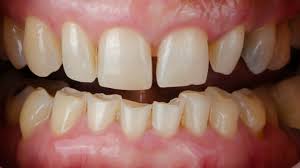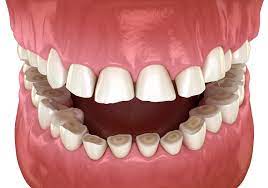Bruxism: Understanding and Managing Teeth Grinding
Bruxism, also known as teeth grinding, is a common condition that affects millions of people worldwide. It is characterized by the involuntary grinding or clenching of teeth, often during sleep. While it may seem like a harmless habit, bruxism can have serious consequences for both dental health and overall well-being. In this article, with insights from Dentist Plano, we will delve into the various aspects of bruxism, from its causes and symptoms to potential complications and treatment options By gaining a deeper understanding of this condition, we can learn how to manage it effectively and prevent any long-term damage to our teeth and oral health.
Definition And Causes Of Bruxism
Bruxism is a condition characterized by the involuntary grinding, clenching, or gnashing of teeth. It is commonly seen during sleep but can also occur during wakefulness. This parafunctional activity can result in various negative consequences, including tooth wear, jaw pain, headaches, and damage to the temporomandibular joint (TMJ). The exact causes of bruxism are not fully understood, but it is believed to be influenced by multiple factors. Stress and anxiety are often cited as significant contributors, as they can lead to increased muscle tension in the jaw. Other factors such as malocclusion, sleep disorders, medication use, and lifestyle habits like smoking and excessive alcohol consumption may also play a role in the development of bruxism. Identifying the underlying causes of bruxism is crucial for effective management and treatment of this condition.
Physical And Emotional Symptoms Explained
Physical and emotional symptoms associated with bruxism can vary from person to person. On a physical level, individuals with bruxism may experience tooth sensitivity, worn-down enamel, jaw muscle stiffness or soreness, and headaches upon waking up. In some cases, the grinding and clenching may even cause fractures or loosening of teeth. Emotionally, bruxism can contribute to heightened stress levels and anxiety, as the condition can be disruptive to sleep patterns and affect overall quality of life. It is not uncommon for individuals with bruxism to also report feelings of frustration, irritability, and difficulty concentrating due to the discomfort and fatigue caused by the condition. Understanding these physical and emotional symptoms is important in order to seek proper diagnosis and develop an effective management plan for bruxism.
Potential Damage To Teeth And Jaw
Bruxism, or teeth grinding, can lead to potential damage to both the teeth and the jaw. The repetitive grinding and clenching motion exerted on the teeth can result in excessive wear and tear, leading to tooth fractures, chips, and even tooth loss. Additionally, the forces generated during bruxism can place significant stress on the jaw joints, causing temporomandibular joint (TMJ) disorders. Individuals with bruxism may experience jaw pain, difficulty opening or closing the mouth, and clicking or popping sounds in the jaw joint. If left untreated, the prolonged pressure on the teeth and jaw can result in long-term damage and a range of uncomfortable symptoms. Therefore, it is crucial to understand the potential risks associated with bruxism and to seek appropriate treatment in order to prevent further damage to the teeth and jaw.
Tips For Managing Bruxism At Home
To manage bruxism at home, there are several strategies that can help alleviate the symptoms and reduce the impact of teeth grinding. One effective approach is to incorporate stress-reducing techniques into your daily routine. Stress is a common trigger for bruxism, so methods such as deep breathing exercises, meditation, and yoga can help relax both the mind and the muscles involved in grinding. Additionally, it is important to maintain a consistent sleep routine and create a relaxing bedtime routine to promote quality sleep, as bruxism is often associated with sleep disturbances. Using a warm compress or taking a warm bath before bed can help relax the jaw muscles. In terms of dental care, avoiding foods and drinks that contain caffeine, as well as alcohol, can help reduce the likelihood of bruxism. It is also advisable to avoid chewing on non-food items, such as pens or ice, as this can exacerbate teeth grinding. Lastly, wearing a mouthguard or splint at night can help protect the teeth and alleviate the pressure on the jaw joints. While these strategies can be effective in managing bruxism, it is important to consult with a dental professional for an accurate diagnosis and personalized treatment plan.
Seeking Professional Treatment Options
When home remedies and self-care strategies do not provide sufficient relief from the symptoms of bruxism, it may be necessary to seek professional treatment options. A dentist or dental specialist with expertise in treating bruxism can evaluate the severity of the condition and recommend appropriate interventions. One common treatment approach is the use of a custom-fitted mouthguard or splint, which helps protect the teeth from grinding during sleep. These devices are designed to fit comfortably and effectively reduce the impact of bruxism on the teeth and jaw joints. In some cases, dentists may also recommend orthodontic treatment or dental restorations to correct any underlying bite misalignments or dental damage caused by bruxism. Seeking professional treatment ensures that individuals with bruxism receive personalized care based on their specific needs, improving overall oral health and reducing the negative consequences of teeth grinding.
Conclusion
As we have discussed, bruxism is a fairly common condition that affects many individuals. While it may seem harmless, it can lead to serious dental and health issues if left untreated. However, with proper understanding and management techniques, individuals can effectively manage their bruxism and improve their overall oral health. It is always important to consult with a dental professional if you suspect you may have bruxism, and together, you can create a personalized plan to address this condition. Remember, prevention and early intervention are key in maintaining a healthy smile. Here our Emergency Dentist Plano, is dedicated to restoring your smile and easing any discomfort you may be facing. Our goal is to ensure that you can confidently return to your daily life feeling comfortable and secure.


